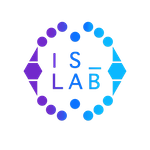N. Bassiliades, I. Vlahavas, “A Deductive Object-Oriented Database System based on Active Rules”, Proc. 6th Hellenic Conference on Informatics, pp. 180-189, Athens, December 1997, 1997.
Author(s): Nick Bassiliades, I. Vlahavas
Appeared In: Proc. 6th Hellenic Conference on Informatics, pp. 180-189, Athens, December 1997, 1997.
Keywords: Knowledge Base System, Deductive Rule, Active Rule, Production Rule, Derived Class, Discrimination Network.
Tags:
Abstract: This paper describes a Deductive Object-Oriented Database (DOOD) system that is built on top of an active Object-Oriented Database (OODB) system. The system, named DEVICE, uses the primitives of the latter, like active rules, simple and complex events, to integrate deductive and production rules. The integration is based on the emulation of deductive rules by special purpose if-then-else production rules that have been smoothly integrated into an active OODB. The DEVICE system supports thus multiple rule systems, like active (event-driven), production (data-driven) and deductive (goal-driven) rules into the same OODB system. The core of this multiple rule integration is: a) the mapping of each high-level rule into one event-driven rule, offering centralised rule selection control for correct run-time behaviour and conflict resolution, and b) the use of complex events to map the conditions of high-level rules and monitor the database to incrementally match those conditions. DEVICE is extensible because a) it re-uses the primitives of the host active OODB system to build the integration scheme, without introduc-ing low-level data structures that do not blend well with the OO model and are not easily extensible, and b) the rule managers support general-purpose rule scheduling functions. In conclusion, DEVICE is a flexible Knowledge Base System (KBS) that gives the user the ability to express knowledge in a vari-ety of high-level forms for advanced problem solving in data intensive applications.
See Also: DEVICE
